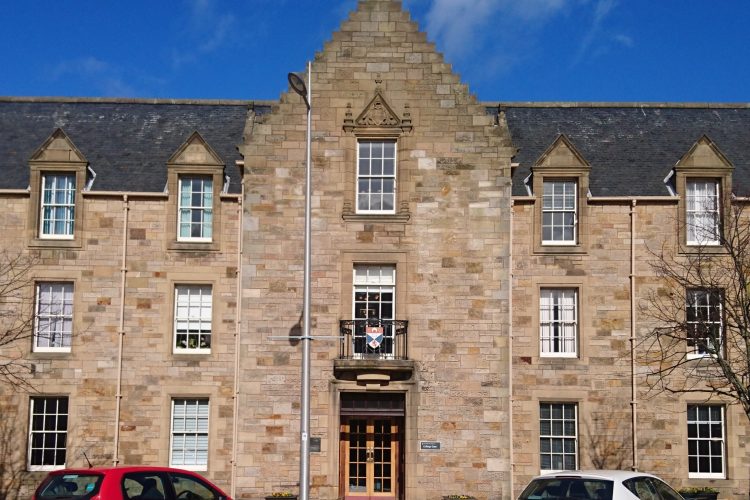Prompted by the Black Lives Matter protests around the world, students at the University of St Andrews have demanded that Principal Sally Mapstone, take action to support Black, Asian and minority ethnic (BAME) students.
The letter states: “We are also writing to you to ask that an official apology and a pledge of sincere support to BAME students are issued, acknowledging the university’s systematic failure to support BAME students and to provide a non-white-centred curriculum and learning experience.”
It asks that the university acknowledge how it “continues to support a system that is rooted in the exclusion of black people” and questions whether enough is being done to attract BAME staff members and protect them from bullying in the workplace.
It concludes: “You may not be able to change the university’s past, but you can shape its future. You may not be able to support black students who graduated years ago, but you can support black students who still experience the university’s failures.”
In response, Professor Mapstone said students and staff had been let down, and added: “On behalf of this university, I apologise for that.” The students’ association has also apologised, saying it had “fallen short” of doing everything it could for BAME students.
Professor Mapstone outlined a number of actions the university was taking to improve BAME representation. “We know that for decades St Andrews hasn’t got this right, that we’ve let down our BAME students and staff and that our university has been, and continues to be, so much the poorer for it,” she said. Acknowledging that injustice, understanding what we are and have been doing to right it and where we must all play a part in enabling structural change is an absolutely fundamental step in our reform.”
A year-long project found more than 20% of St Andrews students are BAME, compared to 8.8% across Scotland as a whole. In addition, 6.6% of staff identify as BAME, along with 35.4% of postgraduates. Just 4% of Scotland’s population identifies as BAME, and in Fife the figure is 2.4%.
The university is already examining the possible advantages of removing candidates’ names from their applications and is working to identify and address issues that disadvantage BAME people. It has launched a staff BAME network and BAME students give recruitment presentations at secondary schools and review all marketing material.
Professor Mapstone said: “Every one of the initiatives under way at St Andrews exists because we want to make a real difference to people’s lives. These actions are only a start but I hope they provide a sense of depth and momentum.”
Student president Jamie Rodney echoed the principal’s apology, saying: “The students’ association, just like the university, has fallen short of doing everything it could for BAME, and particularly black, students. “We’ll be doing everything we can to support the university’s actions and uplift the voices of our black students.”
A spokesman for the University of St Andrews added: “The university is undertaking a series of actions and activities to address imbalances related to ethnicity, including in relation to equal pay.
“The university’s commitment to equality, diversity and inclusion (EDI) is core to its Strategy 2018-2023, and in its key enabler, the People Strategy. Improved ethnic diversity and inclusion is a particular priority.”
“Building on one of only two Staff BAME Networks in Scottish universities, a formal Institutional Race, Ethnicity, Religion and Belief Equality Group was put in place to examine progress in relation to the measures we have established in our published in our EDI staff and student reports, and to identify actions and best practice to address any inequalities. The EDI statistical reports are being published for first time this year and include the staff ethnicity population, pay and promotion gap data and the student ethnicity population, retention and attainment gap.”
“Recruitment and promotion procedures have been revised to encourage applications from underrepresented groups. St Andrews is currently undertaking work to strengthen guidance for the creation of appointment panels. The university requires mandatory unconscious bias and diversity training for recruitment and promotion board members. Other measures include increasing interview consistency and minimising travel requirements, where appropriate, by using accessible technological solutions.”
“The university remains committed to attracting more BAME staff applicants, with St Andrews being the first and only Scottish university to promote in the following media channels: the Windrush Magazine; the Black History Month Magazine and website; the BAME Education and Careers Guide Magazine; and vacancies in the Black Female Professors Forum website. Building on this, the university is engaging with BAME members of the staffing body to ascertain other BAME focused media over the next academic year.”
“Since reporting on equalities under the Scottish Specific Duties in 2013, the number of staff disclosed in BAME data at the university has been increasing both in terms of headcount and as a percentage. Within the HE sector, the university became the first to sign-up to The Prince’s Responsible Business Network’s Race at Work Charter, and is working towards the Advance HE Race Equality Charter.”
“To ensure that the curriculum is reflective of the students in our St Andrews community, we have begun an audit of the inclusive curriculum initiatives currently active across the university, with a focus on practice which aims to enhance the curriculum with respect to race and ethnicity.” The audit will be conducted with a view to identifying areas of improvement and ensuring that all students, including those who identify as BAME, see themselves reflected in the curriculum they experience at St Andrews.”
“We are keen to hear all views on how the University is progressing on any areas that are identified as creating disadvantage for BAME staff and students. We welcome dialogue and encourage engagement and ideas for change.”
